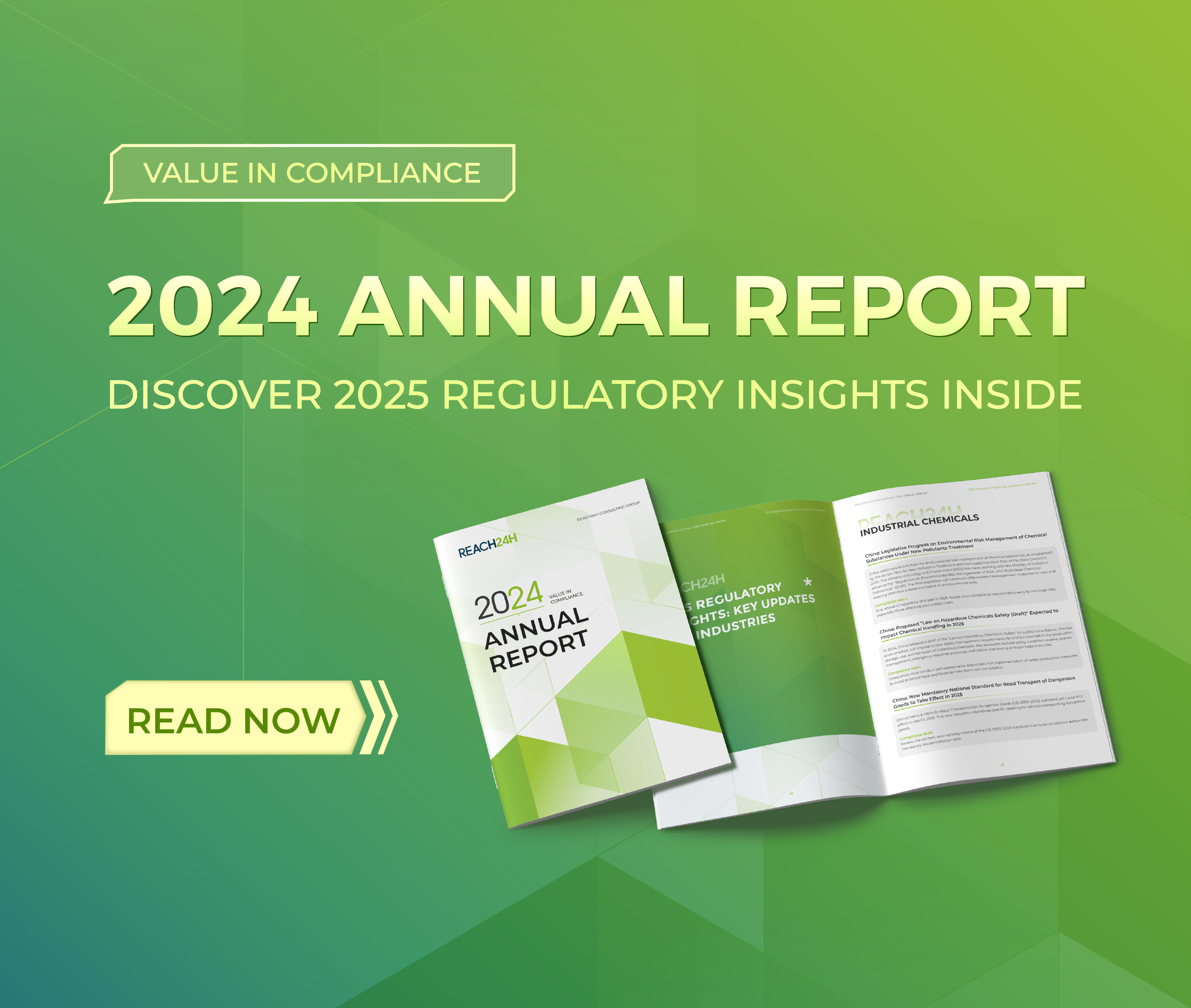China Biological Pesticides: Compliance Suggestions and Market Analysis
In China’s pesticide system, the definition of biological pesticides includes microbial pesticides, biochemical pesticides and botanical pesticides. Although the consumption of biological pesticides accounts for a relatively low percentage in the pesticide industry, the development of biopesticides is keep growing. In recent years, the Chinese government has also encouraged enterprises to develop and use biopesticides, and the registration of biopesticides also enjoys preferential policies.
By December 2021, there are 727 active substances registered as pesticide categories in ICAMA, including 38 biochemical pesticides, 54 microbial pesticides, and 30 botanical pesticides, accounting for 5%, 7% and 4% of the total pesticide active substance registrations respectively. In terms of pesticide preparation product registration, there are 43,281 pesticide products registered in total, including 624 biochemical pesticides, 542 microbial pesticides, and 283 botanical pesticides, accounting for 1.4%, 1.3% and 0.7% of the total pesticide product registrations, respectively.
Definition of Biological Pesticides in China
The definition of biological pesticides in China includes microbial pesticides, biochemical pesticides and botanical pesticides.
Microbial Pesticides
Microbial pesticides refer to pesticides that use living organisms such as bacteria, fungi, viruses, protozoa or genetically modified microorganisms as active ingredients. In terms of production output, the top five microbial pesticides in China are Bacillus thuringiensis, Bacillus subtilis, Helicoverpa armigera nuclear polyhedrosis virus, Metarhizium anisopliae and Paenibacillus polymyxa. In general, microbial pesticides production focuses on limited varieties with relatively small production scale.
Biochemical Pesticides
Biochemical pesticides refer to pesticides that simultaneously meet the following two conditions: First of all, they are not directly toxic to the controlled target, but only takes special effects such as regulating growth, interfering with mating or attracting. Secondly, they should be natural compounds. If they are artificially synthesized, the structure should be identical to natural compounds (differences in isomer ratios are allowed). The currently registered biochemical pesticides mainly include some insect pheromones, gibberellic acid, indole acetic acid, brassinolide, etc.
Botanical Pesticides
Botanical pesticides refer to pesticides of which the active ingredients are directly derived from plants. The currently registered botanical pesticides include matrine, rotenone, azadirachtin, veratramine, pyrethrin, etc.
China Biological Pesticides Registration Introduction
In 2017, China published the latest Pesticide Registration Data Requirements, which largely reduced the registration tests of biological pesticides and shortened the time period required to complete registration. Toxicology tests, environmental tests and residual tests of different biopesticides may be exempted based on the pesticide characteristics, which significantly reduces registration costs. In the case of microbial pesticides, effect tests can be conducted in multiple places within one year, 19 environmental, toxicology and residual tests can be exempted. The optimized Pesticide Registration Data Requirements provides a positive policy environment for biopesticide development. At the same time, China provides policy preferences for the development of the biopesticide industry. On the premise of ensuring the high efficiency and safety of the products, the preferential policy proposes green channel for registration approval of biopesticide and other products, which gives priority to biopesticide registration technical reviews and accelerates the technical review process while maintaining product quality and safety.
In addition, after the implementation of the new Pesticide Management Regulations in 2017, the Authority exempted the registration of products of natural enemies of pests such as Trichogramma and flat-bellied wasp, and the production licenses are subject to filing instead of registration.
For now, there are many commercialized natural enemy pesticides in China, which are mainly sold and used in the form of insecticidal egg cards and insecticidal egg bags. This measure is popular among a large number of natural enemy biopesticide manufacturers and users.
Challenges of the Biological Pesticides Market
Recently, China’s biopesticide industry has been developing well under favorable national policies. The number of registered varieties, production capacity and market shares of biopesticide keep growing. However, there are still challenges regarding industrial scale, research and development capabilities, product qualification rate, etc.
Small Industry Scale
Compared with the industry scale of chemical pesticides, the scale of China’s biological pesticide industry is relatively small with low market shares. The output of biological pesticides is mainly consisted by the top five varieties. The output of biochemical pesticides, mainly natural plant growth regulators, is the highest at 11,694 tons, the output of microbial pesticides is more than 8,000 tons, and that of botanical pesticides is 7,445 tons. The top five products of biochemical pesticide production are gibberellic acid, aminooligosaccharide, brassinolide, triacontanol and 14-hydroxybrassinosterol, accounting for 71% of biochemical pesticides. The top five products in microbial pesticide production are Bacillus thuringiensis, Bacillus subtilis, Helicoverpa armigera nuclear polyhedrosis virus, Metarhizium anisopliae CQMa421 and Paenibacillus polymyxa KN-03, accounting for 78% of microbial pesticide production. The top five products of botanical pesticides are matrine, camphor, rotenone, TDS, and triptolide, accounting for 86% of the output of botanical pesticides.
Week Research and Development Capability
The development of Chinese biopesticide enterprises is restricted by adverse factors such as weak foundation, lack of funds and talents, and weak R&D and innovation capabilities of the overall biopesticide industry. There are few varieties of biochemical pesticides, but more of botanical and microbial pesticides, independently developed in China. However, issues such as slow response and unstable quality control exist for botanical pesticides and microbial pesticides. The market needs more excellent biopesticide varieties and products. The overall R&D and innovation capabilities of the biopesticide industry in China are still weak, and there is still a wide gap compared with major developed countries in the world.
Hidden Addition of Chemical Pesticides in Biopesticides
According to market sampling inspections in recent years, some biological pesticide preparations illegally add chemical pesticides. The hidden addition of chemical pesticides into biological pesticides has always been a prominent problem in the supervision of the biological pesticide market, and has always been listed as an important part of the sampling inspection.
Registered as Fertilizer Instead of Pesticide
Both pesticides and fertilizers have to be registered in China, but the registration thresholds are quite different. Some companies register their products as fertilizers, but in the sales process, they claim that their fertilizer products have pesticide functions such as curing diseases and killing pests. Such problems are most prominent in plant growth regulators and microbial pesticides.
China implements a registration management system for both microbial fertilizers and microbial pesticides, but there are significant differences in policy guidance, registration data requirements, test content and test completion period. For example, microbial fertilizer manufacturers can complete field tests to verify fertilizer efficiency on their own, and the tests on product quality, bacterial strain identification, and toxicological tests can be performed by fertilizer registration agencies. The registration certificate can be obtained within 9 months after the application is accepted.
For microbial pesticides, enterprises need to complete the testing of product characteristics, efficacy, toxicology, and environmental impact. The cost of completing the registration of pesticide ingredients and preparation products (non-new pesticides) is more than 500,000 CNY and shall be paid by the enterprises. The testing period for toxicology, environment, etc., depends on the specific situations, generally it takes more than half a year, and the field efficacy test takes 1 to 2 years. The evaluation takes 9 months. During the data review procedure, enterprises can apply for the green channel to speed up the approval process for microbial pesticides.
The registration requirements and technical standards of microbial pesticides are significantly higher than those of microbial fertilizers. This is why some enterprises illegally register their products as fertilizer instead of pesticides.
Few Dosage Forms
There are more than 60 kinds of chemical pesticide dosage forms, while the dosage forms of biological pesticides are much simpler, especially microbial pesticides and botanical pesticides. Among the three main types of biological pesticides (biochemical pesticides, microbial pesticides and botanical pesticides), there are more dosage forms of biochemical pesticides, including soluble, emulsifiable concentrate, powder, wettable powder, soluble powder, suspension, microemulsion and granule, water dispersible granule, etc. The dosage forms of microbial pesticides usually include granules, wettable powders, water-dispersible tablets, suspending agents and seed treatment suspending agents. Compared with the above two types, the dosage forms of botanical pesticides are much simpler, generally include soluble, microemulsion or emulsifiable concentrate, etc.
Low Product Qualification Rate
In recent years, the Ministry of Agriculture and Rural Affairs of China continuously organized specific sampling inspections on biological pesticides. Generally, 600 to 700 biological pesticide products are sampled each year. The qualification rate of biological pesticides has always been low, generally around 50%. However, in 2021 this situation was significantly improved. Except for product quality, the qualification rate of products is also closely related to the particularity of the biological pesticide, such as stability and storage conditions.
Lack of Strain Number for Microbial Pesticide Preparation Products
Microbial pesticide preparation products such as fungi and bacteria do not have specific strain numbers. It misleads the market regulators, technicians and users to believe that microbial pesticides products of the same general category (such as Bacillus thuringiensis, Metarhizium anisopliae, Beauveria bassiana, Trichoderma harzianum, etc.) have the same functions, so that consumers only need to compare content and price of different products.
In fact, the preparations produced and processed with different strains may have great differences in the control effect of pests. Farmers as consumers are not aware of these differences and prefer cheaper products, which causes vicious competition and damage to agricultural production. Some companies even change strains after obtaining the pesticide registration certificates, bringing potential risks to the registration, management and use of microbial pesticides.
Compliance Suggestions
In recent years, biopesticides have always been a hot spot but not sold as like hotcakes.
There are objective reasons such as weak R&D capabilities of enterprises and low R&D investment, as well as reasons of the product characteristics, which are mainly reflected in two aspects: First, due to the particularity of the product, the field efficacy is greatly affected by environmental conditions, and the performance of products corresponding to different strains of different companies in the field also differs greatly; Second, the slow onset of biological pesticides fail to meet the farmers’ needs of quick-acting results, limiting its application. Although the current biopesticide industry and market share is limited, biopesticides may have an important impact in the future to solve the problem of resistance to chemical pesticides, reduce the risk of excessive chemical pesticide residues in economic crops, reduce or lower the amount of chemical pesticides and the number of applications, and better protect the ecological environment.
Combine with the market situation and policy in China, we have several tips for foreign companies.
Product Selection
There are still limited types of biological pesticides in the Chinese market, and the research and development capabilities of Chinese companies are relatively weak. A lot of efforts have to be made to catch up with developed countries. Therefore, mature biopesticides from foreign countries are still relatively competitive to enter the Chinese market.
Registration Crop
The cost of biopesticide application is high and it is greatly affected by environmental conditions. When selecting the registration of crops, enterprises can consider facility crops with relatively stable environmental conditions, or specialty crops with good field management conditions and high economic value. Such selection allows a full play of biopesticide advantages.
Caution on Market Penalties
The authority of China has realized the necessity to strengthen market supervision and sampling inspection on plant growth regulators, foliar fertilizers, microbial pesticides, botanical pesticides, and microbial fertilizers, especially to severely punish foliar fertilizers and microbial fertilizers that claim to have pesticide functions. Therefore, it is necessary to carry out compliant pesticide registration for biological pesticides.
To sum up, China is promoting the development of green agriculture, and there is still broad market potential for biological pesticides in China. For overseas enterprises, choosing proper biopesticide products is an opportunity to enter the Chinese market. The registration cost of a brand new biopesticide product is relatively low and the time cost is short. Certain preferential registration policies also apply.
If you have any questions about the registration of biopesticides in China, don’t hesitate to contact REACH24H Consulting Group.
Tel: +86 (0)571-87006630
Email: customer@reach24h.com
Reference Link: China Pesticide Registration
This Article is copyright protected. Except with the prior effective permission of REACH24H Consulting Group and indicating the source, no unit and person may use it for secondary creation, commercial promotion, internet copy, and dissemination, etc.


